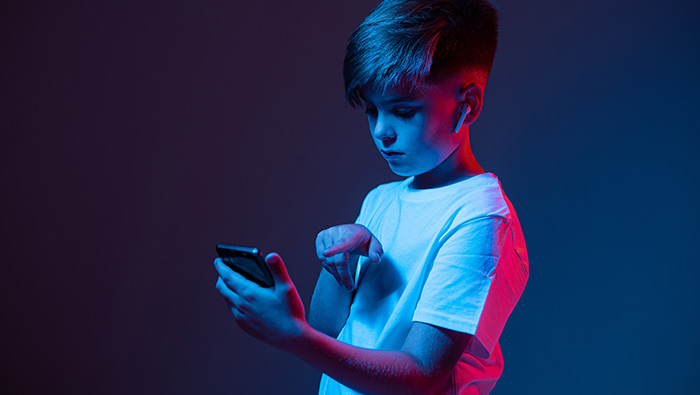
We used to play with marbles, skipping ropes or just simply kicking a ball around but now ten-year olds are fixated on the screen of a mobile phone reaching out to the unknown world.
It is easy to say they are growing up very fast and parents may argue it is the best way to educate their children to the ways of the world.
But the truth is that parents simply let their children occupy themselves with a mobile phone while they get the free time at home for themselves. It also means that children are now more raised by the opinions of people thousands of kilometers away than by their own parents sitting in the next room. The question I have is this: Is it right?
For me, the social media may be part of their education but the harm outweighs the advantages. It can easily get them into trouble. The social media is potentially addictive and they can get in contact with people who can advantage of their naivety.
Delaying our children’s interaction with social media until they are matured enough makes a lot of sense. How can a ten-year old understand the harm of looking at a damaging content or sending out posts that someone has the potential of taking advantage of their young age?
We know that the priority of all social media outlets is to make as much money as possible and not to protect young children. We also know that there are many people using the social media looking to prey on children. They know that children are vulnerable as they start to explore the world. I would say that the safest age is about 16 for children to get into the social media arenas.
At that age, they are already matured enough to understand what is right and wrong. For those who would say 16 is ‘too old’ then they are exposing their children to the possibility of irreversible harm. If we hope that children will ‘figure it out’ themselves from what is good or bad for themselves then we are more naïve then them.
It is wrong to assume that, like one parent told me, to allow children ‘to use the social media as an education tool.’ The second question I have is this: did he, as a parent now, miss out anything when there was no social media in the years he was growing up? As matured people, we can pick and drop what we like but a ten-year old does not have that ability.
Predators always look for children in the social media and other online platforms to engage them in crime. One way they influence children is by using live messaging in chats. All the predators hide their identities. For example, a 45-year old man would pretend he is 12. He would use bullying or blackmailing techniques after sharing some photos or information.
Modern criminals using social media are ruthless and you don’t want your child to be part of it. It goes without saying that it is the responsibility of parents to make sure it does not happen. While we know sometimes it is impossible to protect children from everything online, parents must at least educate their children about predators.